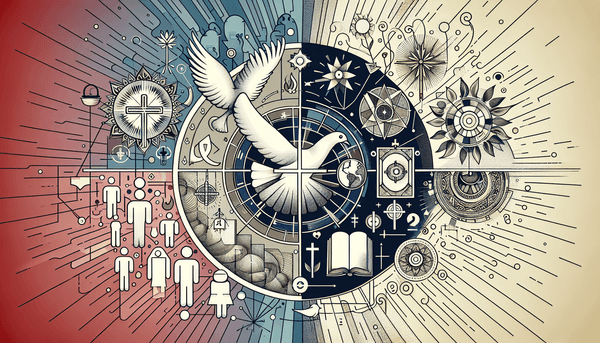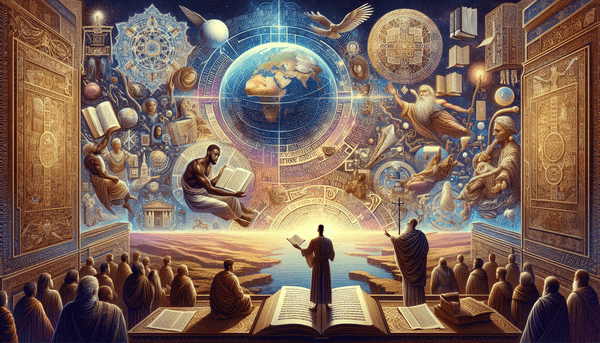Science and Faith: The Big Bang and Biblical Creation
The notion that the Big Bang theory and the Biblical account of creation can coexist is a testament to the profound nature of belief. For those who see the phrase 'Let there be light' from Genesis 1:3 as a metaphor for the Big Bang, science and scripture converge, offering a unified narrative of the universe's inception. The Book of Job (26:7), which speaks of God stretching out the northern skies and hanging the Earth on nothing, echoes the vastness and mystery of the cosmos that science seeks to understand. In the marvels revealed by scientific exploration, from the heavens proclaiming the work of His hands (Psalm 19:1) to the divine nature clearly seen in creation (Romans 1:20), one can find space for both scientific inquiry and spiritual reverence, each enriching the other in a personal quest for truth.
Faith and Salvation: The Path to Eternal Life
The Christian doctrine posits that faith in Jesus Christ is the cornerstone of salvation and eternal life, as affirmed in John 14:6. This tenet underscores the significance of grace and mercy within the faith, emphasizing that salvation is not earned by works but is a gift from God (Ephesians 2:8-9). Yet, the call to live a good and righteous life resonates beyond doctrinal boundaries, inviting all to embody the spirit of truth and justice. The assurance of salvation through Jesus Christ is further supported by scriptures like Romans 10:9 and Acts 4:12, which reiterate the importance of belief in Christ's resurrection and his unique role as the Savior of humankind. It is within this context that individuals are encouraged to engage in a life reflective of God's love and teachings.
Community and Personal Faith: Church Attendance and Relationship with God
The Christian life is often lived out in the balance between communal worship and personal devotion. While the church serves as a place for believers to gather, encourage one another, and grow in faith—as recommended in Hebrews 10:25—an individual's relationship with God can also thrive through personal prayer, contemplation, and study of the scriptures. The presence of God among those gathered in His name (Matthew 18:20) underscores the importance of fellowship, yet the personal pursuit of God through practices like reading the Bible, which acts as a 'lamp for our feet and a light on our path' (Psalm 119:105), is equally vital. It is through these varied avenues that one can seek and experience a deeper connection with the Divine.
Understanding God: Christian and Islamic Perspectives
Christianity and Islam share a belief in one God, a concept known as monotheism, yet they diverge in their theological understanding of Jesus Christ. Christianity professes the divinity of Jesus, as articulated in John 17:3, and emphasizes the Trinitarian concept of God (Matthew 28:19). In contrast, Islam views Jesus as a prophet, not divine, and insists on the absolute oneness of God. Despite these differences, mutual respect and dialogue remain essential. Both faiths teach the importance of understanding God's nature and His role in the universe, as seen in the Christian belief in one mediator between God and mankind, Jesus Christ (1 Timothy 2:5), and the overarching message of love central to the understanding of God (1 John 4:8).
God's Dominion: Creator of the Universe
The Bible affirms God's role as the Creator and Lord over all, from the Earth to the expanse of the universe. Psalm 24:1 and Psalm 103:19 speak of God's ownership and rulership over all creation, while Isaiah 66:1 poetically describes heaven as His throne and the Earth as His footstool. This divine sovereignty is further emphasized in Nehemiah 9:6, which proclaims God as the life-giver to all. The New Testament echoes this sentiment in Colossians 1:16, asserting Christ's role in the creation of all things. These passages invite reflection on the omnipotence and majesty of God and encourage believers to marvel at the divine craftsmanship present in the natural world.






